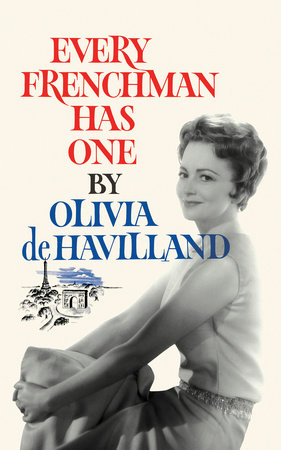
Tag Archives: paris


From the Editor’s Desk: Vice President and Editorial Director Rebecca Saletan on I’m Supposed to Protect You from All This by Nadja Spiegelman
 At moments like these, editors can feel a little like the Wizard of Oz, struggling to muster godlike pronouncements from behind a threadbare curtain of authority. I confess I wondered at moments if we were both lost. But as Nadja began to send me draft chapters, working her way through the material, it became clear to me that my author, young and wide-eyed as she was, had incredibly well-developed impulses as a writer. She knew where she was going, and she returned to the material, draft after draft, until she got it there.
Like many writers, Nadja is a creature of the night, but she took that to extremes. Sometimes when we’d Skype, well into the evening for me – editors tend to be creatures of the night too, at least when it comes to editing – she’d still be up, working, when dawn was already breaking in Paris. Sometimes we continued our conversations the next morning, though at her age, the punishing hours she was keeping did not show. But they paid off. Gradually a gorgeous, intricate narrative emerged, one that mimicked the layering and warping of memory, to powerful effect.
I have daughters of my own, a decade younger than Nadja – more or less the age Nadja was when her mother first told her her story. I came to the book not only as editor but as mother and daughter. I wondered about all the things I had never asked my mother about her past, or her mother’s. I was in awe of Francoise’s courage in revealing everything, and doubted that I would have the same. The book made me appreciate that we do not understand any adult until we see him or her as someone’s child. I loved getting to be part of its coming into the world.
Listen to an interview with Nadja on the Beaks and Geeks podcast:
At moments like these, editors can feel a little like the Wizard of Oz, struggling to muster godlike pronouncements from behind a threadbare curtain of authority. I confess I wondered at moments if we were both lost. But as Nadja began to send me draft chapters, working her way through the material, it became clear to me that my author, young and wide-eyed as she was, had incredibly well-developed impulses as a writer. She knew where she was going, and she returned to the material, draft after draft, until she got it there.
Like many writers, Nadja is a creature of the night, but she took that to extremes. Sometimes when we’d Skype, well into the evening for me – editors tend to be creatures of the night too, at least when it comes to editing – she’d still be up, working, when dawn was already breaking in Paris. Sometimes we continued our conversations the next morning, though at her age, the punishing hours she was keeping did not show. But they paid off. Gradually a gorgeous, intricate narrative emerged, one that mimicked the layering and warping of memory, to powerful effect.
I have daughters of my own, a decade younger than Nadja – more or less the age Nadja was when her mother first told her her story. I came to the book not only as editor but as mother and daughter. I wondered about all the things I had never asked my mother about her past, or her mother’s. I was in awe of Francoise’s courage in revealing everything, and doubted that I would have the same. The book made me appreciate that we do not understand any adult until we see him or her as someone’s child. I loved getting to be part of its coming into the world.
Listen to an interview with Nadja on the Beaks and Geeks podcast:
Listen: Nadja Spiegelman on getting to know her grandmother, living in France, and difficult conversations

From the Editor’s Desk: Matt Inman, Senior Editor for Crown Trade on Every Frenchman Has One by Olivia de Havilland
Win a Trip for Two to Paris Inspired by The Little Paris Bookshop

Click here to enter before 11:59 PM (EST) on April 30th. Don’t miss your chance!To celebrate the paperback publication of the international bestseller The Little Paris Bookshop by Nina George, we want you to experience spring in Paris!

Let the Book Apothecary pick out your next read!

“With all due respect, what you read is more important in the long term than the man you marry, ma chère Madame.” – Monsieur Perdu, The Little Paris Bookshop
 “The Little Paris Bookshop is an enchantment. Set in a floating barge along the Seine, this love letter to books – and to the complicated, sometimes broken people who are healed by them – is the next best thing to booking a trip to France.”—Sarah Pekkanen, author of Catching Air
Get your recommendations here!
“The Little Paris Bookshop is an enchantment. Set in a floating barge along the Seine, this love letter to books – and to the complicated, sometimes broken people who are healed by them – is the next best thing to booking a trip to France.”—Sarah Pekkanen, author of Catching Air
Get your recommendations here! 
Writing Tips from Elizabeth Berg, author of The Dream Lover
Do you ever base characters on people you know?
All the time! And I think you’d be hard-pressed to find a writer who wouldn’t say the same thing. But. Even if you do base a character on a person you know, that person becomes changed in small or large ways to accommodate the story you are trying to tell. So in the end, a real person becomes a made-up person. That’s the way it works for me in fiction, anyway.
How would you recommend creating and getting to know your characters?
For some writers, characters just come to them, though they are usually vague at first, ill formed. As the writer keeps on with the story, the characters reveal more and more about themselves.
There are times, though, when a character comes out of nowhere, fully formed; I love when that happens. HOW it happens, I have no idea. It’s like finding a four- leaf clover.
Some writers are very meticulous about keeping notebooks, compiling details that will go into making up a character, and so by the time they start writing, the character is pretty much determined: how he looks and acts and says is less of a surprise.
If you want to write, you need to find out what methods work best for you. It’s always best for me when it’s FUN writing a character, even the obnoxious ones–in fact, the obnoxious ones might be the most fun to write.
How is writing historical fiction different from other fiction?
I think what’s most important in historical fiction is that it feels like the story is actually taking place in whatever time you set it. People need to talk a certain way, have certain ways of doing things, have certain expectations of each other, certain moral codes. Clothes need to be right. Food. The political and social climate. You take on a lot of responsibility when you write historical fiction. You have a contract with a reader that you will take them somewhere else in time; you don’t want them feeling like they’re seeing behind the curtain. It’s much harder than contemporary fiction!
Is there something to do to get in the writing mood?
Yes. Write.
I don’t mean to sound flip with this answer. It seems to be true that if you just get that first sentence down, another will want to follow. That said, I’m almost always in the mood to write; it’s what I love doing most. I think if writing is an awful chore for you, if you have to trick yourself into sitting down and putting down lines, you might be better off in another line of work. Even if you’re a good writer, if you don’t like doing it, what’s the point?
What is your writing style, in five words or less?
Intimate.
Read more about The Dream Lover here.









